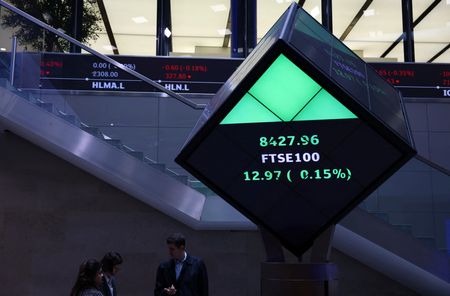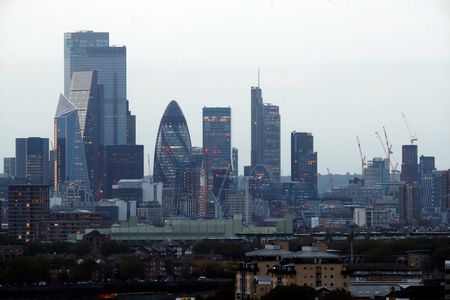BERLIN (Reuters) -Foreign direct investment into Europe fell for the second consecutive year in 2024, reaching its lowest level in the last nine years, a survey by professional services group EY found.
FDI into Europe fell by 5% last year, with Germany seeing a 17% drop in projects due to ongoing economic and political instability, although it saw a 35% increase in the number of jobs.
Companies surveyed cited a sluggish economy, persistently high energy prices and the geopolitical environment as the top three risks impacting their investment decisions.
The number of projects announced by U.S. investors in Europe declined by 11% compared with 2023 and by 24% compared with 2022, due to improving economic conditions in the U.S., which competes with Europe for investment.
Meanwhile, investment trends in Europe highlight a growing shift towards intra-European capital flows. The survey showed that since 2015 the share of investments originating from within Europe has increased by 5 percentage points.
“Over 60% of our investment comes from Europe for Europe,” EY EMEIA Area Managing Partner Julie Teigland told Reuters, noting that U.S. FDI represents only 18%.
“Europe’s got to get its skates on and do its homework,” Teigland said. “That means less focus on regulation, more focus on increasing competitiveness.”
U.S. tariffs make an immediate rebound of FDI into Europe unlikely. Some 37% of investors surveyed in early 2025 have postponed, cancelled or scaled back their European investment plans.
Nevertheless, 61% of executives surveyed believe that Europe’s attractiveness will improve over the next three years.
Although this figure represents a decline of 14 percentage points compared with last year’s survey, it remains high and is in line with levels seen in 2021 and 2022, prior to Russia’s invasion of Ukraine.
“If Europeans know that they invest in Europe and it’s going to produce good returns, this should be seen as an opportunity,” Teigland said.
Spain, now the fourth-largest country for FDI in Europe, posted a 15% increase in 2024 compared with 2023, and together with Italy shows the growing competitiveness of Southern Europe.
In the EY survey, France topped the foreign investment list even though its tally of investment projects fell by 14% and job creation dropped by 27% compared with 2023 due to a protracted period of political uncertainty.
Britain, in second position, saw a 13% decline in FDI projects in 2024, impacted by low productivity and some of the highest energy prices in Europe.
(Reporting by Maria Martinez, Editing by Friederike Heine and Hugh Lawson)











